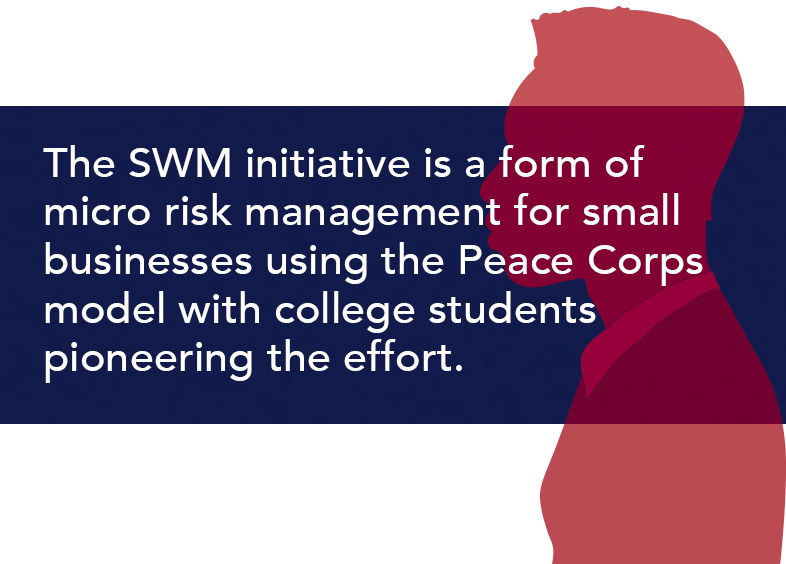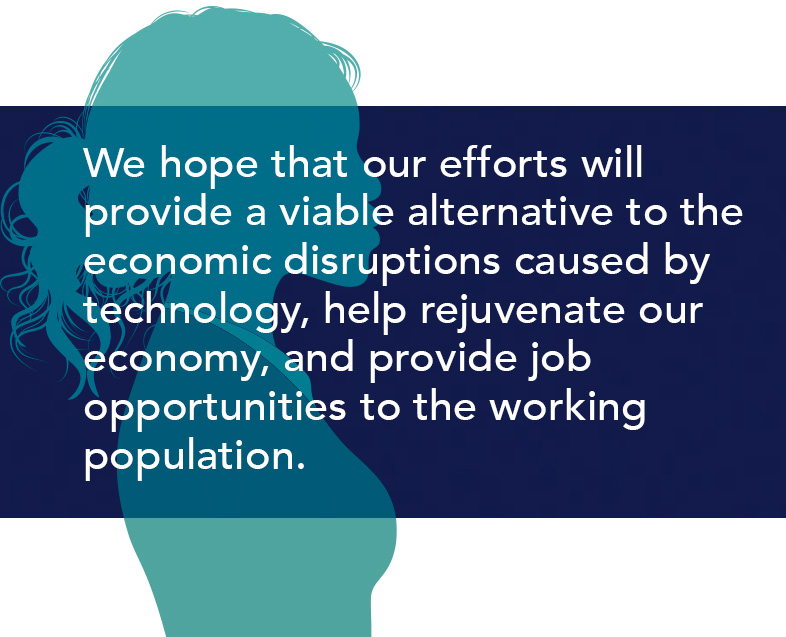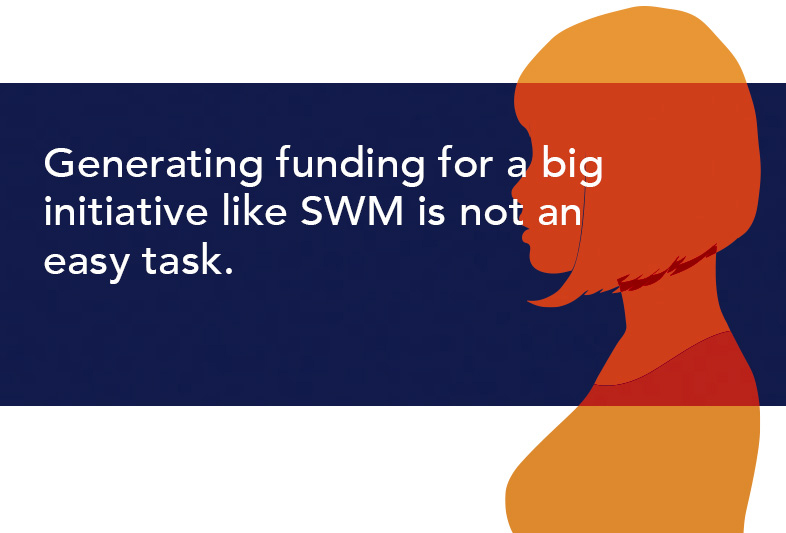By Jay Vadiveloo
Editor’s note: This article is a follow-up from the Commentary in the March/April issue of Contingencies (“Toward a New School of Thought”).
Introduction
The motivating factor behind the Students for Workers Movement (SWM) initiative has been the Peace Corps movement that I experienced as a high school student while growing up in Malaysia. What was remarkable about the Peace Corps was that the volunteers were young college graduates, passionate about what they were doing—and making a major impact on the students they taught, like me. The volunteers did not follow the rigid disciplinary rules we were accustomed to from our regular teachers. Instead, they maintained a friendly relationship with all students and encouraged open debate and discussion on every issue.
My experiences with the Peace Corps influenced how I manage the Goldenson Center and work with students, and inspired the creation of the SWM initiative—a student-run initiative at UConn under my guidance. Some key differences between the Peace Corps and the SWM initiative are
- the Peace Corps is global, while SWM is U.S.-based; and
- the Peace Corps provides educational services, while SWM provides risk management services to vulnerable small businesses.
It would be remiss of me to not give credit to the pioneering work by Nobel Peace Prize winner Muhammad Yunus of Bangladesh in micro-financing and micro-credit. Yunus has demonstrated that a grassroots idea like micro-financing can grow and make a significant impact on struggling workers and farmers.
However, there were a couple of triggering events leading to the success of Yunus’ work.
- A desperate need for micro-financing to help poor people in dire straits to achieve financial self-sufficiency; and
- The subsequent support of large organizations to ensure sustainability and scalability of micro-financing.
In the same vein, the SWM initiative is a form of micro risk management for small businesses using the Peace Corps model with college students pioneering the effort. It is hoped that soon, the SWM initiative can make an impact on the sustainability and growth of small businesses in the country.

Additionally, the SWM initiate has similar triggering events.
Triggering events
The statistics on small businesses are quite eye-opening. Data from the Bureau of Labor Statistics (BLS) show that small businesses create two-thirds of new jobs and deliver 43.5% of the United States gross domestic product. In addition to keeping the economy running, small businesses also lead the way in innovation. Small businesses produce 16 times more new patents per employee than large patenting firms do. Besides the positive impact that small businesses have on the economy, they also provide a potential solution to the economic upheaval caused by advancements in technology, the COVID-19 pandemic, transition to a global economy, outsourcing of American jobs and factories to overseas operations, and the decimation of the manufacturing and other labor-intensive industries in the U.S. Small businesses could become a source of new jobs and opportunities for dislocated workers and generate entrepreneurship and innovation in the economy.
However, data from the BLS also show that small businesses experience high failure rates. Approximately 20% of new businesses fail during the first two years of the start of their business, 45% during the first five years, and 65% during the first 10 years. Only 25% of new businesses make it to 15 years or more.
The SWM initiative is targeting a vulnerable segment of small businesses, namely minority-owned small businesses, women-owned small businesses, veteran-owned small businesses, and small businesses run by owners with disabilities. These vulnerable small businesses face additional challenges above and beyond what any small business faces.

Our SWM initiative strives to grow and develop this segment of vulnerable small businesses by using teams of students to provide risk management services to small businesses. We hope that our efforts will provide a viable alternative to the economic disruptions caused by technology, help rejuvenate our economy, and provide job opportunities to the working population.
The other triggering event we will create is to harness the support of large corporations for our SWM initiative. We will describe our efforts in the next section of this article as well as address other challenges we are facing.
Implementation Issues
One of the challenges in taking a good idea and bringing it to fruition totally lies in how it is implemented. The SWM initiative faced several challenges.
- How to maintain ongoing support of student resources to analyze the risks and opportunities facing small businesses?
- How to ensure a steady pipeline of small businesses for student teams to analyze?
- How to generate funding on an annual basis for the SWM initiative from corporate sponsors?
- How to use the information gathered from the SWM initiative to create a value proposition for corporate sponsors and provide tangible and measurable benefits to small businesses?
Many of these implementation challenges are interrelated, and the Goldenson Center uses a variety of approaches to overcome them. We first assembled teams of students to do the risk management analysis work—pro bono, because we currently do not have any support funds for the initiative. With the initial work done, the SWM initiative could use the findings to seek funds from corporations and the Goldenson Center Advisory Board members. Fortunately, the SWM initiative is able to draw on the majority of student resources from UConn’s actuarial science program, as well as some students from the School of Business to volunteer their services on this project. The SWM initiative is a valuable opportunity for students to serve in the community as well as being the pioneers in an initiative that could grow and become impactful for vulnerable small businesses.
The second challenge is to identify a steady pipeline of small businesses for students to do the risk management analysis. While students were great once they connected with a small business and could start the analysis, they faced problems in finding small businesses to connect with, reaching out to the small business owners, and getting them to share financial data with the student teams. This is a true challenge despite the fact that the SWM initiative was offering these risk management services at no cost to the business owners.
To overcome this critical challenge, we created a partnership with Metro Hartford Alliance and the Hartford Chamber of Commerce, key organizations in Connecticut serving small businesses in the region. This partnership has resolved our second big challenge—getting a steady stream of small businesses to allow us to do a risk management analysis. This partnership helps promote the SWM initiative to all the small businesses that Metro Hartford Alliance and the Hartford Chamber of Commerce serve.

Generating funding for a big initiative like SWM is not an easy task. Because the corporate members of the Goldenson Center Advisory Board have always been strong supporters of the activities of the Goldenson Center, our fund drive was initially aimed at these corporate representatives. However, it is important that we clearly explain the benefits of the SWM initiative to our corporate sponsors.
We hope to sustain an annual fund from our corporate donors to accomplish the following:
- Provide a stipend to students working on this project
- Hire a full-time project manager who will coordinate all the SWM activities, including the development and maintenance of the SWM database and the tracking and monitoring of key performance indicators for this project
Corporate sponsors of the SWM initiative can benefit in the following ways:
- Have access to the unredacted SWM reports and the student teams that worked on the reports
- Have a better understanding of the risks and opportunities each analyzed small business faces that can be met by corporate products and services
- Be part of a growing and highly visible movement to help the vulnerable small businesses we are targeting
- Provide a means for a company to fulfill its corporate social responsibilities in the region
The Goldenson Center will work closely with the UConn Foundation in this fund drive. All corporate donations will reside in the UConn Foundation as part of the Goldenson Center account and be used exclusively to support the SWM initiative.
What is next?
The risk management analysis of small businesses has already started with a volunteer team of students. To transform this initial work into the larger initiative we have described in this article, the Goldenson Center launched the SWM Risk Management Symposium for Small Businesses on March 24, 2023. The symposium showcased the SWM business partners, which include the Goldenson Center, Metro Hartford Alliance, Hartford Chamber of Commerce, UConn Foundation, and the Goldenson Center Advisory Board. The highlight of the symposium was the panel discussion led by selected small businesses and the corresponding SWM student teams.
To conclude this article, this quote from Margaret Mead, renowned cultural anthropologist, seems appropriate: “Never doubt that a small group of thoughtful, committed citizens can change the world; indeed, it’s the only thing that ever has.”
Our hope is that someday, our pioneering SWM initiative will be remembered in this manner.

Acknowledgements
None of this would be possible without the volunteer help of the student teams who were driven solely by the desire to make an impact on the small-business community. The business partners we assembled are critical for this project and should be acknowledged. In particular, the Advisory Board sponsors for this project have ensured that the SWM initiative will grow and be sustainable and provide a valuable learning experience for students participating in the project.
JAY VADIVELOO, MAAA, FSA, is the director of the Janet & Mark L. Goldenson Center for Actuarial Research at the University of Connecticut.





